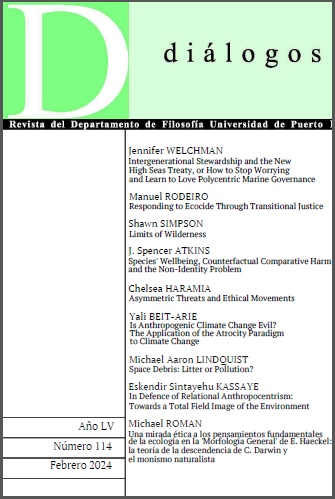Abstract
The objective of this article is to present, in an ethical context, the two fundamental thoughts that configure the ecology of the second half of the XIX century developed by the naturalist Ernst Haeckel: Charles Darwin’s theory of descendance and the natural monism. Ecology emerges in its beginnings as a subdiscipline of biology in the 19th century, particularly through the work of E. Haeckel entitled General Morphology of Organisms in 1866. In this work Haeckel compares a biology understood in a wide sense, to a biology understood in a narrow sense. The latter is equivalent to ecology, which is defined as the science of economy, as well as the forms of life and the external relations between organisms. Even though contemporary ecology has gone from being a branch of biology to being an interdisciplinary field with contributions from multiple branches of knowledge, the philosophical foundations under which Haeckel originally conceived ecology are closely related to strong ethical concerns that continue to have relevance in the current paradigm. Rethinking Haeckel's ecology, returning to the origin of this discipline, could serve as support to broaden the ethical perspective in this field of knowledge.

This work is licensed under a Creative Commons Attribution-NonCommercial 4.0 International License.

